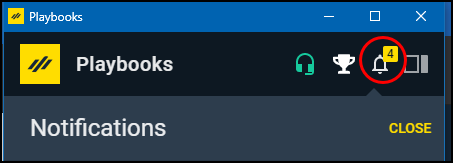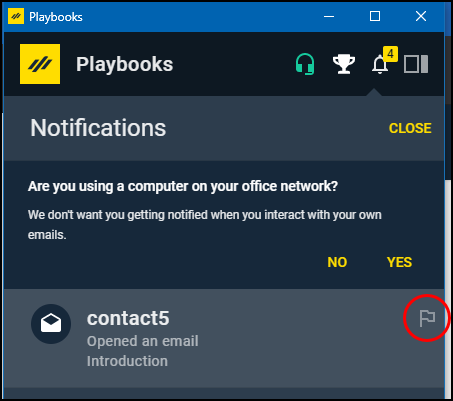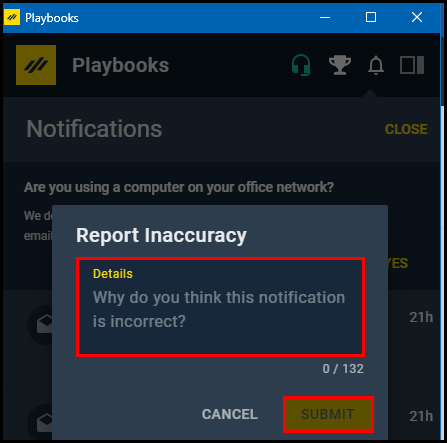Overview
When you are experiencing issues with the notifications (I.E. an email notification does not look correct or you are receiving lots of notifications) Playbooks offers the option to flag it to improve your email notification experience. Over time, Playbooks will learn your preferences and provide you with optimal alerts.
Information
An email notification can be triggered incorrectly. For instance, certain email filters or virus protections within the client’s email may scan all the links within the email to verify their safety. The scan tricks Playbooks into thinking the recipient clicked each link resulting in multiple invalid email notifications.
You can either flag invalid notifications through Microsoft Outlook, or directly in Playbooks.
Flagging Invalid Email Notifications in Microsoft Outlook
To flag invalid email notifications in Microsoft Outlook, complete the following steps:
- Open the Microsoft Outlook Application.
- Click the Notifications button in the Playbooks for Outlook section of the ribbon (If you don't have this add-in installed in your environment, you can find it in the Microsoft AppSource Store).
- Hover over the questionable notification and click on the flag.
- Enter details for the flagging action and click Submit.
Flagging Invalid Email Notifications in Playbooks
To flag an invalid email notification in Playbooks, complete the following steps:
- Open Playbooks.
- Click the Bell button.
- Hover over a questionable notification and click on the flag.
- Enter details for the flagging action (why do you think this notification is incorrect?) and click Submit.
Once you report (flag) the notification, our engineering department will be able to see the flagged item on a list with all the aspects related to it, which will help them in the troubleshooting and resolution phases.
<supportagent>
Only for Support Agents
Usually, this behavior is associated with errors in the backend cookies. When the customers use the flagging system to mark an invalid notification, these flagged notifications are added to a table in the database that can be accessed and modified through API calls using Postman.
- More information about the root cause of this issue and the solution for these misbehaviors can be found in the Deleting Cookies in the Backend Through Postman KB Article.
</supportagent>



Priyanka Bhotika
Comments